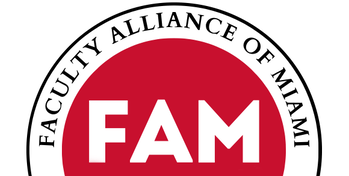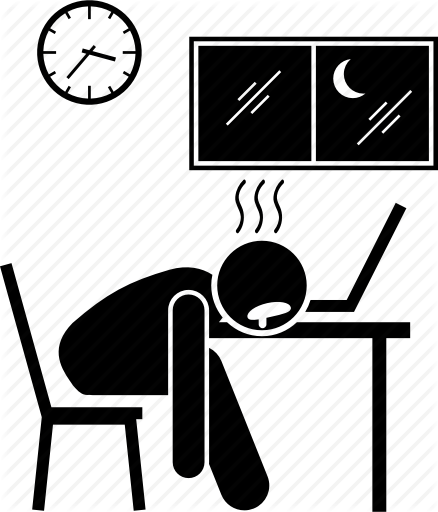Faculty Working Conditions are Student Learning Conditions
COVID-19 has stretched higher education in ways that we could not have imagined. Faculty and staff at Miami have spent the last year working under extraordinary conditions to continue to provide a high-quality education, serve our community, and produce top research. Throughout, we have heard from senior Miami administrators how critical it is for us to work together and live by the Miami Code of Love and Honor.
In fall, faculty workloads increased, not only because we were still adjusting to online teaching, but because we were teaching more. In the wake of the non-renewal this spring of approximately 200 non-tenure-track faculty originally assigned to teach fall courses, most faculty taught additional sections and/or higher per-course enrollments. While struggling to adjust to a workload that is reducing our capacity for Miami-quality engagement with students, we have been further disappointed by the Provost’s recent decision to impose—with little time for faculty consultation—permanent changes to workload governance that will alter the nature of education at Miami.
Most importantly, changes in faculty workload expectations threaten Miami’s teacher-scholar model and directly affect our students.
Workload policy at Miami does need clarification. We must ensure that work is distributed equitably and fruitfully. But the short timeline on workload governance revision—just two weeks per the APEIP timeline—is not permitting adequate feedback and discussion within colleges and departments. Departments have been given just weeks to make permanent changes to workload governance. In many cases, these changes (alongside increases in class sizes) are increasing teaching expectations with little consideration of pedagogical outcomes and without specifications about corollary reductions in expectations for research or service.
As course releases offered in exchange for service or research disappear, increases in workload expectations are forcing faculty to make difficult choices between the necessary service we do to maintain the university, the research we do for the public good, and our calling as teachers. In the long run, all three will be degraded. In combination with the “sweep” that stripped away most faculty research funding last year, workload uptick is likely to have a significant impact on faculty prospects for promotion and career success. What’s more, increasing teaching expectations without adjustments to research or service expectations will disproportionately impact on faculty of color and women already overburdened with service. This last point is especially discordant given Miami’s explicit commitment to sustaining a diverse faculty and staff.
We note that Ohio law supports careful consideration of workload balance: “Litigation over the constitutionality of the Ohio statute [3345.45] has resulted in judicial guidance that supports the mandatory reduction of other workload duties when instructional workload is increased, and any increase in instructional workload must result in a corresponding decrease in research or other faculty duties.”
Most importantly, changes in faculty workload expectations threaten Miami’s teacher-scholar model and directly affect our students.
Overburdening faculty may seem efficient, but it is not a road to excellence; it is a road to attrition and a decline in educational quality. It’s time for a pause in the relentless pile-on of extra work for faculty and administrators alike. Faculty working conditions are student learning conditions. Our students know this as well as we do. As a recent Miami Student editorial says, “Professors need more help, Miami.”
We ask two things.
First, that there be a pause on demanding projects such as APEIP, Miami Plan, and workload revision until August. This year, faculty have juggled unusually high workloads which included extra teaching and larger classes while adjusting to online teaching, taking care of relatives or children at home, and trying to sustain research projects. It’s the wrong time to be grinding forward with projects that require significant service time such as APEIP, Miami Plan revision, and workload governance revision. When major efforts toward efficiency and economizing are piled on top of existing overloads, they result in the ultimate inefficiency: worker burnout and apathy. It’s our students who will suffer most.
Second, in any discussion of workload changes and APEIP-related changes to departments and programs, our educational mission must be the first priority. Our prized ranking for commitment to undergraduate learning is slipping, and it’s not because faculty don’t want to serve our students — it’s because overstuffed classes, extra sections, and unmanageable service obligations mean we cannot serve our students as effectively. Efficiencies that harm educational quality are false economies that damage our reputation and, ultimately, our bottom line.
We urge the university to pause the various revisions under consideration to allow all of us to reflect on how we can best support the teaching and research mission that has made Miami’s reputation.


Leave a Reply